Allen Barra on Winston Churchill
Is there anything left to say about Churchill’s extraordinary life and turbulent times? If so, can it be said in the brief compass of Paul Johnson’s 192-page primer?Can Paul Johnson's 192-page primer tell us anything about Churchill's extraordinary life that we didn't already know?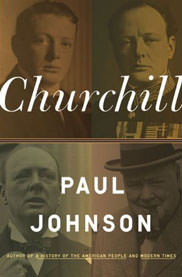
“There’s nothing much in that field left unplowed,” Winston Churchill told a prospective biographer in 1950. Since then, the field, large enough even then, has been expanded to almost insane proportions. Churchill’s is far and away the best-documented life of the 20th century. He left in excess of 15 tons of papers not including the estimated 8 million to 10 million words of his collected speeches, all plumbed by nearly 700 biographers and perhaps 10 times as many historians. It isn’t merely the number of biographies but their size that intimidates — those by William Manchester, Martin Gilbert and Roy Jenkins alone would almost be heavy enough to take the submarine HMS Churchill to the bottom.
“History will bear me out,” he famously declared, “particularly as I shall write that history myself.” And he did. His “History of World War II,” nearly twice as long as all three volumes of Gibbon’s “The Decline and Fall of the Roman Empire,” is still regarded as a valuable if not impeccable source. Given the mountain of material by and on Churchill, the first question about any new book with his name on the cover should be: Why do we need a new one? The answer, of course, is that a book is needed for people who want an introduction to the key political figure of the 20th century and don’t know where to start.
As if to mock all those massive Churchillian tomes, Paul Johnson’s “Churchill” checks in at a neat 192 pages. It’s a good primer, a book for someone who wants to know something about Churchill without trying to learn everything. It’s no small accomplishment to do a concise life of Churchill, and Johnson clearly relishes the task: “Of all the towering figures of the twentieth century … Winston Churchill was the most valuable to humanity and also the most likeable. It is a joy to write his life. …”
Winnie is a perfect subject for the author of “Intellectuals,” Johnson’s 1988 compendium of the wickedness and hypocrisy of left-wing icons. Churchill was dynamic, patriotic and decidedly nonintellectual, an autodidact who, in the words of one biographer, “was incapable of rigorous analysis, and after making his conclusions, clung to them too stubbornly.” At the same time he was a pragmatist with no discernible political philosophy and no higher motive than saving his country in its darkest hour.
The closest thing Churchill had to a religion was, in Johnson’s words, “the British constitution, spirit and letter. Parliament was the church in which he worshipped and whose decisions he obeyed.” He was certainly no ideologue and had no discernible political philosophy: “He was not a party man. … His loyalty belonged to the national interest, and his own. At one time or another, he stood for Parliament under six labels: Conservative, Liberal, Coalition, Constituents, Unionists and National Conservative.” Still, “If Churchill was ever anything, he was a Liberal (as well as a Seditionist and a small ‘c’ conservative.”)
Certainly Churchill was no conservative in the sense that a modern American would recognize; indeed, as John Lukacs has maintained, he is more accurately seen as a reactionary. He certainly wasn’t a liberal as most modern Brits and Americans understand the term. (A judgment confirmed by such statements as “I’m quite satisfied with my views on India, and I don’t want them disturbed by any bloody Indian.”) Johnson means liberal in an older and broader sense, as exemplified by Churchill’s oft-quoted distinction between socialism and liberalism: “Socialism seeks to pull down wealth. Liberalism seeks to raise up poverty. Socialism would destroy private interests — Liberalism would preserve private interests in the only way in which they can be safely and justly preserved, namely by reconciling them with public right. Socialism would kill enterprise; Liberalism would rescue enterprise from the trammels of privilege and preference.” (Why hasn’t someone in the Obama administration made use of this quote?)Johnson succeeds in compressing a staggering amount of material and illuminating detail into a small space. Other biographers may have noted that among Churchill’s favorite movies were “Stagecoach” and “Destry Rides Again” (he walked out of “Citizen Kane” in disgust), but if they did, I have not noticed. It’s hard to come up with flashes of the great man’s wit that haven’t been run into the ground; I had not previously seen Churchill’s remark about Eisenhower’s secretary of state, John Foster Dulles: “That man makes a beautiful declension: Dull, Duller, Dullest.” And I find it inspiring that a man could fight a world war and write enough books to fill a small library while consuming an estimated 20,000 bottles of champagne.
What Johnson misses, however, he misses big. Johnson and Lukacs (and numerous historians before them) are correct in calling Churchill the key figure of the Second World War –“There was no one else,” Johnson maintains, “who could have done what he did in 1940” — but he fails to address the question that is perhaps most important to readers in the 21st century: Should we have an interest in Winston Churchill outside of World War II? (One might say the question was first asked by Hitler in 1940: “But had this war not come, who would speak of Churchill?”)
To put it another way, did Churchill’s life before and after World War II leave anything lasting for posterity? To call his career before 1939 checkered is generous, even while acknowledging that, as Johnson says, “The [1921] Anglo-Irish treaty must be counted another of his positive achievements.” He was, even allowing for the prejudices of his time and class, irrevocably wrong on a great many important issues such as British rule of Ireland, India, women’s suffrage and, in more practical matters, his monetary policies, including his disastrous decision in 1925 to return Britain to the gold standard, precipitating a major recession.
It may be true, as he said, that “I should have made nothing if I had not made mistakes,” but should he have been allowed so many? Even a catalog of blunders during his greatest years, from 1941 to 1945, are eye-opening. He may not have been solely responsible for the debacle in the Dardanelles during World War I — Johnson lets him off the hook almost entirely — but what could excuse his miscalculation in the Second World War that the Mediterranean coast was “the soft underbelly of Europe”? The minor disaster at Dieppe, in Norway, and his major failure to understand the threat of Imperial Japan are not easily ignored. (“I do not believe,” he said in 1924, “there is the slightest chance of it [war with Japan] in our lifetime.”)
Do we excuse him for these and other mistakes just as serious? Of course, because, as he once said to an attendant in excusing his own rudeness, “I am a great man.” He was a warrior, but in no way a warmonger.
In Johnson’s judgment, “Churchill was sufficient of a realist to grasp that wars will come, and that a victorious one, however dreadful, is preferable to a lost one.” Or as Churchill himself wrote in “My Early Life,” “I have always been against the Pacifist during the quarrel, and against the Jingos at its close.”
No matter how many books Winston Churchill inspires, it is probably no longer possible for us to truly understand him. Vital as he was to the 20th century, he was still, as he put it, “A child of the Victorian era,” assuming the white man’s burden with a born allegiance to an empire that no longer matters to us, that no longer even holds nostalgia for us — although I suspect it holds more than a little nostalgia for Paul Johnson.
The great lines from Churchill’s great speeches are still alive to us, but they evoke the past without illuminating the future. In contrast, Franklin Roosevelt appears to us as one of the first representatives of the modern Western society that would come to dominate the postwar world, while Winston Churchill appears to us now only as the avatar of a past still strongly felt but only dimly remembered. The memory, though, is one from which his image can never fade. Never.
|
Allen Barra writes about sports and the arts for The Wall Street Journal and Bookforum. |
As we navigate an uncertain 2025, with a new administration questioning press freedoms, the risks are clear: our ability to report freely is under threat.
Your tax-deductible donation enables us to dig deeper, delivering fearless investigative reporting and analysis that exposes the reality beneath the headlines — without compromise.
Now is the time to take action. Stand with our courageous journalists. Donate today to protect a free press, uphold democracy and uncover the stories that need to be told.

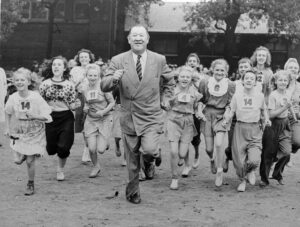

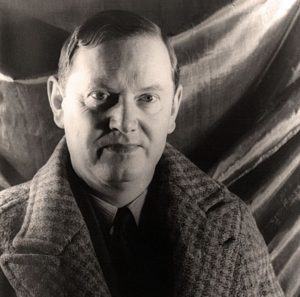
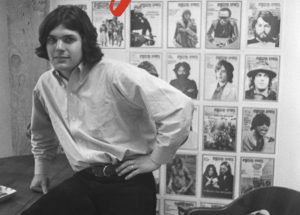
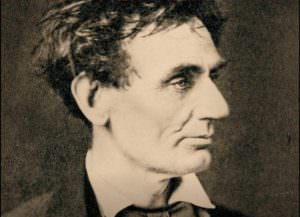
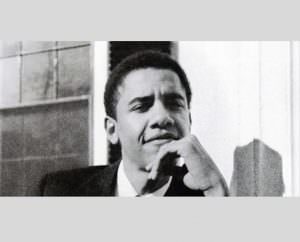
You need to be a supporter to comment.
There are currently no responses to this article.
Be the first to respond.